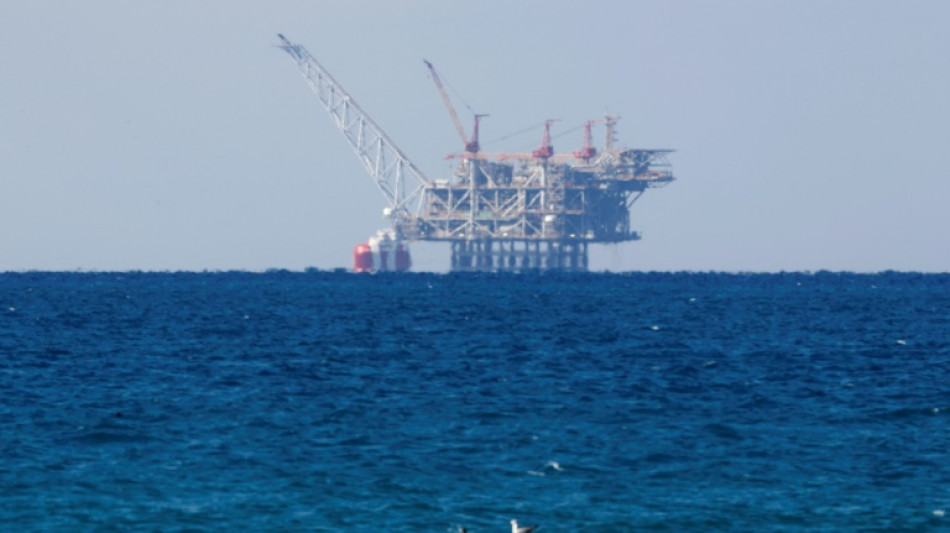
-
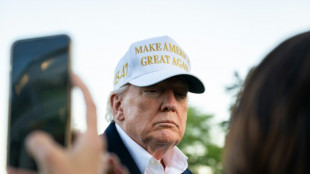 Trump targets US 'sanctuary cities' in migrant crackdown
Trump targets US 'sanctuary cities' in migrant crackdown
-
Mexico agrees to send water to US after Trump threatens tariffs
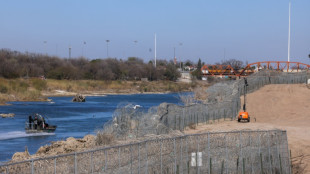
-
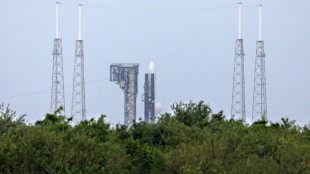 Amazon launches first Starlink-rival internet satellites
Amazon launches first Starlink-rival internet satellites
-
US lost seven multi-million-dollar drones in Yemen area since March

-
 Bucks blow as Lillard suffers torn Achilles: team
Bucks blow as Lillard suffers torn Achilles: team
-
Putin orders three-day truce amid new US warnings
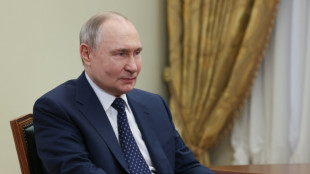
-
 Real Madrid's Ancelotti agrees Brazil deal - reports
Real Madrid's Ancelotti agrees Brazil deal - reports
-
ChatGPT adds shopping help, intensifying Google rivalry

-
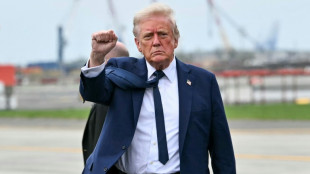 Global stocks mixed amid trade hopes as markets await tech earnings
Global stocks mixed amid trade hopes as markets await tech earnings
-
Commanders heading back to D.C. after inking $3.7 bln stadium deal
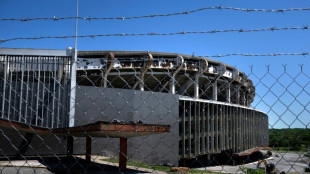
-
 US warplane falls off aircraft carrier into Red Sea
US warplane falls off aircraft carrier into Red Sea
-
Feisty Arteta urges Arsenal fans to 'bring boots' to PSG Champions League clash

-
 Bucks blow as Lillard suffers ruptured Achilles: reports
Bucks blow as Lillard suffers ruptured Achilles: reports
-
No power, no phone, no transport -- Spain in a panic
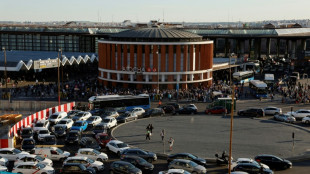
-
 US warplane went overboard into Red Sea: Navy
US warplane went overboard into Red Sea: Navy
-
'Like a dream' as IPL's 14-year-old Suryavanshi becomes youngest to hit T20 ton

-
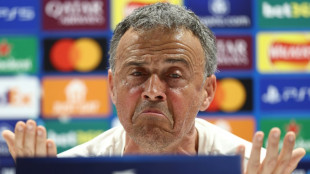 Luis Enrique says PSG have improved since October Arsenal loss
Luis Enrique says PSG have improved since October Arsenal loss
-
UN food, refugee agencies warn of huge cuts after funding losses
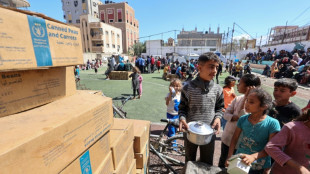
-
 Trump trade war dominates BRICS meeting in Brazil
Trump trade war dominates BRICS meeting in Brazil
-
Rashford expected to miss rest of Aston Villa season

-
 IPL's 14-year-old Suryavanshi youngest to hit T20 ton as Rajasthan rule
IPL's 14-year-old Suryavanshi youngest to hit T20 ton as Rajasthan rule
-
Halle Berry, Jeremy Strong to join Cannes film festival jury: organisers

-
 Klopp congratulates Liverpool on Premier League triumph
Klopp congratulates Liverpool on Premier League triumph
-
Violence-weary Trinidadians vote in general election

-
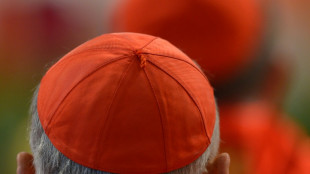 Abuse scandal in focus in search for new pope
Abuse scandal in focus in search for new pope
-
Prince William and Kate mark wedding anniversary in Scotland

-
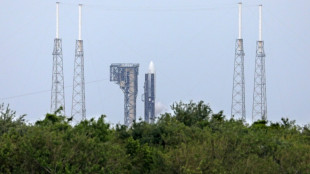 Amazon set for launch of Starlink-rival satellites
Amazon set for launch of Starlink-rival satellites
-
London mayor Sadiq Khan targets Olympic history for city
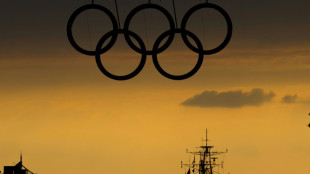
-
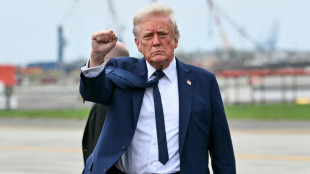 Stock markets diverge amid trade hopes, ahead of earnings
Stock markets diverge amid trade hopes, ahead of earnings
-
Canada votes as Trump renews US takeover push
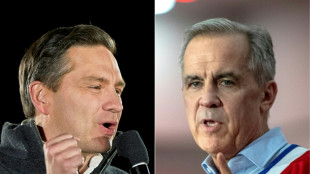
-
 Massive blackout hits all of Spain and Portugal
Massive blackout hits all of Spain and Portugal
-
Conclave starts May 7, cardinals say new pope must tackle abuse

-
 BRICS ministers meet in Brazil over Trump trade policies
BRICS ministers meet in Brazil over Trump trade policies
-
Trump escalates immigration crackdown to mark 100 days
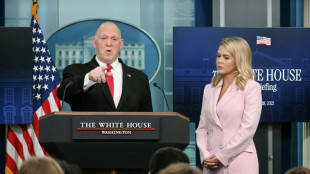
-
 Outkast, White Stripes, Cyndi Lauper among Rock Hall inductees
Outkast, White Stripes, Cyndi Lauper among Rock Hall inductees
-
Putin orders three-day truce in May but Ukraine asks 'Why wait?'
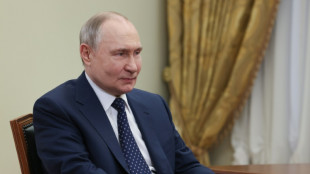
-
 Eubank Jr discharged from hospital following boxing grudge match
Eubank Jr discharged from hospital following boxing grudge match
-
China deploys army of fake NGOs at UN to intimidate critics: media probe
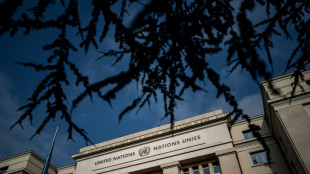
-
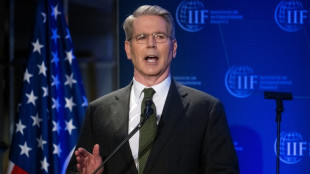 Empty shelves? US Treasury secretary not concerned 'at present'
Empty shelves? US Treasury secretary not concerned 'at present'
-
Slot told Liverpool they could win the league at season start: Konate
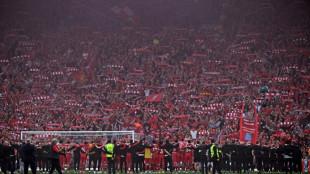
-
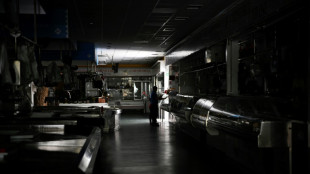 Spain brought to a halt by huge blackout
Spain brought to a halt by huge blackout
-
Stock markets mostly higher amid trade talk hopes
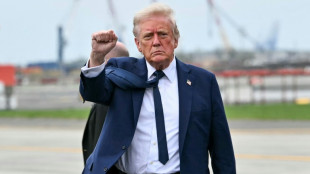
-
 Conclave starts May 7, with cardinals saying new pope must tackle abuse
Conclave starts May 7, with cardinals saying new pope must tackle abuse
-
Massive blackout hits Spain and Portugal
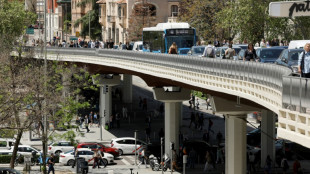
-
 Ruediger 'must show respect to others' says Germany boss Voeller
Ruediger 'must show respect to others' says Germany boss Voeller
-
As Canada votes, Trump pushes US takeover plan
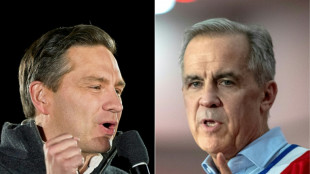
-
 Ten on trial in Paris over 2016 gunpoint robbery of Kim Kardashian
Ten on trial in Paris over 2016 gunpoint robbery of Kim Kardashian
-
African players in Europe: Salah scores, takes selfies as Reds seal title

-
 Bangladesh spinner Taijul's 5 wickets trigger Zimbabwe collapse in 2nd Test
Bangladesh spinner Taijul's 5 wickets trigger Zimbabwe collapse in 2nd Test
-
French mosque murder suspect, 21, surrenders in Italy
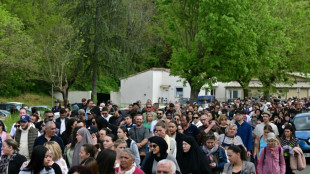

As EU eyes stopping Russian gas imports, Israel sees an opening
As Europe aims to wean itself off Russian fossil fuel because of the Ukraine invasion, Israel hopes to help fill the gap with gas from its offshore reserves.
EU states remain divided on the time scale, but European Commission President Ursula von der Leyen has said the bloc hopes to phase out its dependency on Russian gas, oil and coal by 2027.
Israel could build one or more pipelines, potentially via Greece or Turkey, or increase the quantity of gas piped to Egypt to be liquified and shipped off, say officials and experts.
Israeli Foreign Minister Yair Lapid said after a recent visit to Athens that "the war in Ukraine stands to change the structure of the European and Middle Eastern energy market".
"We are also examining additional economic cooperation, with an emphasis on the energy market."
The Jewish state has worked for years to create gas export routes, with mixed results so far.
Turkey, whose ties with Israel have recently thawed after over a decade of rupture, has expressed new interest in a pipeline, and its energy minister is expected in Israel in the coming weeks.
During the years of diplomatic alienation from Turkey, Israel signed an accord with Greece and Cyprus in 2020 aiming to build the EastMed pipeline through those two countries from Israel to Europe.
Turkey opposed the project, and a senior US diplomat said last week it would be too expensive and take too long to build.
Energy Minister Karine Elharrar also hailed the potential for gas sales to Europe, telling the French Association of Defence Journalists that "we have the ability and we will try to do as much as we can".
- Regional alliances -
With both Greece and its regional rival Turkey vying to be the conduit for the gas, Israel would have to tread carefully amid the regional alliances it wishes to uphold and strengthen.
Major gas finds in the eastern Mediterranean -- nearly 1,000 billion cubic meters (bcm) -- have in the past decade turned Israel from a natural gas importer into an exporter.
It now sells small quantities from its two major offshore fields, Leviathan and Tamar, to Egypt and Jordan.
Israel's domestic consumption over the next three decades would leave some 600 bcm available for export, said opposition lawmaker Yuval Steinitz, Israel's energy minister until last year.
"In 2016 the pipeline to Turkey was examined, including with Turkey and commercial companies," said Orit Ganor, director of natural gas international trade at Israel's energy ministry.
"The project didn't reach fruition mainly due to economic reasons."
Ganor said "the EastMed pipeline is still an option, and the company advancing it, Poseidon, is in the final stages of geophysical and geotechnical surveys of the pipe's route in our waters and those of Greece and Cyprus".
No financing has been secured for the project, which Steinitz said would cost about $6 billion and take around four years to complete.
He said there was also agreement with Cairo on a seabed pipeline from Leviathan to Egypt's liquification plants that would allow for greater exports to Europe.
- 'Catch-22' -
Israel's Leviathan field, which would be the source for European exports, is operated by an Israeli-American consortium including NewMed Energy and US major Chevron.
NewMed Energy CEO Yossi Abu recently stated his ambition of "bringing Israeli gas to Europe and Asia".
Experts say Israel's current gas fields represent a third of potential reserves, but a means to sell future finds would be needed to encourage further exploration by private companies.
The state of Israel provides exploitation licenses and regulatory support, but does not drill for gas or build pipelines.
"There's a 'Catch-22' here," said Elai Rettig, a political scientist at Tel Aviv's Bar-Ilan university.
"You need to find a customer that will agree to pay for this very, very expensive pipeline, and they won't do it until you show them you've found enough gas to justify it.
"And you won't find enough gas to justify it until you show that there's someone to sell the gas to."
Europe's efforts to diversify gas imports began before the Ukraine war when it "experienced harsh weather and gas prices rose significantly," said Ganor, the energy ministry official.
Steinitz said a pipeline to Turkey would cost $1.5 billion and take two to three years to build.
Israel "could definitely be a serious factor in creating more independence and a wealth of energy sources for Europe," he said.
He said Israel could even export via Greece, Turkey and Egypt at the same time because "we have enough gas to export through the three channels".
Rettig stressed Israel's need for "balance" between Turkey and Greece and to "continuously talk to both sides and to reassure them that one doesn't come at the expense of the other".
B.Finley--AMWN